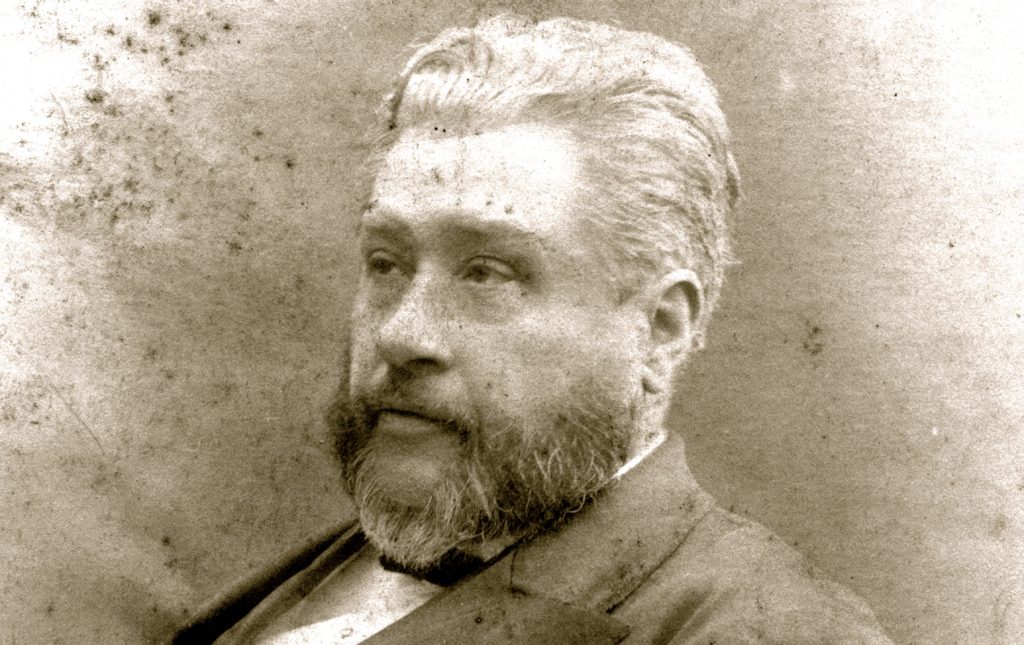
Finding contentment in the midst of ministry is a challenging task. In today’s world, this difficulty is intensified by our insatiable access to sources of ministry jealousy. Social media, podcasts, and blogs frequently contribute to intense feelings of discontentment. Even studies in church history often leave a pastor feeling inadequate! After all, who could read about 20-year-old Charles Spurgeon preaching to thousands without being tempted towards resentment? In spite of this potential for temptation, Spurgeon’s own testimony and preaching can encourage weary ministers through restless periods in service to the church.
Here are 6 insights gained from Charles Spurgeon for those frequent days when the struggle with contentment persists:
A Reminder
Your current ministry is a call from God. Discontent is often a result of questioning God’s call. In a sermon preached in 1872, Spurgeon responds to “spiritual Don Quixotes” ambitiously seeking better opportunities:
"God has made you what you are, a mother, or a daughter, a husband, a servant, or a master; serve God as such… Extraordinary calls may come, and I pray they may come to some here present, but they are not likely to be given to those who cannot use their present every-day opportunities."
A Truth
The biblical example is of faithful service in both “small” and “large” ministries. Ministers find examples of contentment in service throughout the Bible. Preaching on Rahab, Spurgeon points out,
"Moses kept sheep till he was bidden to deliver Israel; Gideon was threshing when the angel appeared to him; and the disciples were fishing when Jesus called them. They used diligence in their callings, and then threw their hearts into their higher calling. So Rahab did… She fulfilled a very necessary part in Israelitish history. Her faith was truly active and is to be commended."
A Reality
Every person needs the Gospel, including those in your current ministry. Ministers looking for contentment beyond their current setting neglect those around them. At various points in his ministry, Spurgeon encouraged would-be missionaries to begin preaching to those around them in their local settings first. Speaking to a group of young men, Spurgeon preaches on the need to preach the Gospel in all places and to all people:
"The human mind is the same everywhere. Its sins may take another form, but there are just the same difficulties in one place as in another… Just try your hand at the conversion of that young man who sits next you in the pew. See what you can do for Jesus Christ in the shop. See whether you can serve your Master in that little Bible-class of which you are a member."
An Encouragement
Every opportunity to preach the Gospel to attentive hearers is a blessing. Preaching the Gospel is a joy whether the audience is large or small. Those trapped in ministry discontentment should be reminded of this encouraging truth. Reflecting on his first sermon preached to “a few poor cottagers” at Teversham, Spurgeon commented,
"Our villages and hamlets offer fine opportunities for youthful speakers. Let them not wait till they are invited to a chapel, or have prepared a fine essay, or have secured an intelligent audience. If they will go and tell out from their hearts what the Lord Jesus has done for them, they will find ready listeners."
A Promise
Your current ministry is preparation for later ministry opportunities. Although the minister should not focus on future opportunities for contentment, today’s ministry is a training ground for everything that lies ahead. Spurgeon urges young ministers,
"To make the very poorest listen with pleasure and profit is in itself an achievement, and beyond this it is the best possible promise and preparation for an influential ministry. Let our younger brethren go in for cottage preaching, and plenty of it."
This promise was confirmed by Spurgeon’s life. As a young man, his first pastorate was a small, rural congregation at Waterbeach. He faithfully served this congregation until his call to New Park Street Chapel in London. Upon his call, he wrote these words to his new congregation on April 28, 1854,
"I sought not to come to you, for I was the minister of an obscure but affectionate people; I never solicited advancement. The first note of invitation from your deacons came quite unlooked-for, and I trembled at the idea of preaching in London. I could not understand how it had come about, and even now I am in the hands of our covenant God, whose wisdom directs all things He shall choose for me; and so far as I can judge, this is His choice."
A Warning
A desire for future opportunities may render you ineffective in your current ministry. Discontentment leads to a lack of focus on the current ministry. Once again reflecting on Teversham, Spurgeon remarks,
"Many of our young folks want to do great things, and therefore do nothing at all; let none of our readers become the victims of such an unreasonable ambition. He who is willing to teach infants, or to give away tracts, and so to begin at the beginning, is far more likely to be useful than the youth who is full of affectations and sleeps in a white necktie, who is studying for the ministry, and is touching up certain superior manuscripts which he hopes ere long to read from the pastor’s pulpit."
Each of us will battle with discontentment, regardless of the size of our ministry or the phase of our career. Charles Spurgeon knew this fact, as he undoubtedly felt this temptation himself. I prayerfully hope that these reminders from Spurgeon’s ministry will help you as you carry on in the work of the Gospel.
Stephen Reynolds is the pastor of First Baptist Church in Cuba, New Mexico, and a PhD student in Historical Theology at Gateway Seminary. You can be follow him on Twitter.